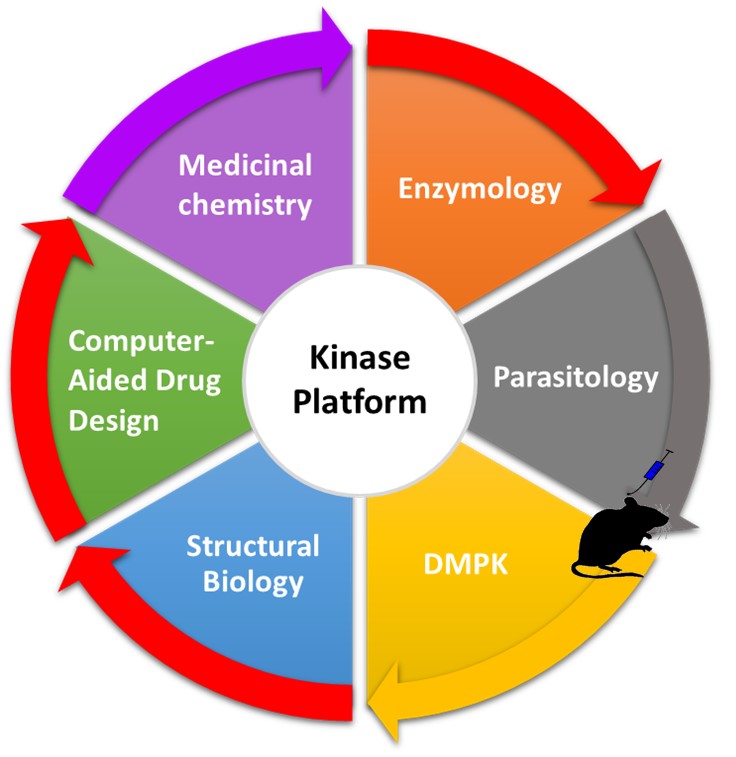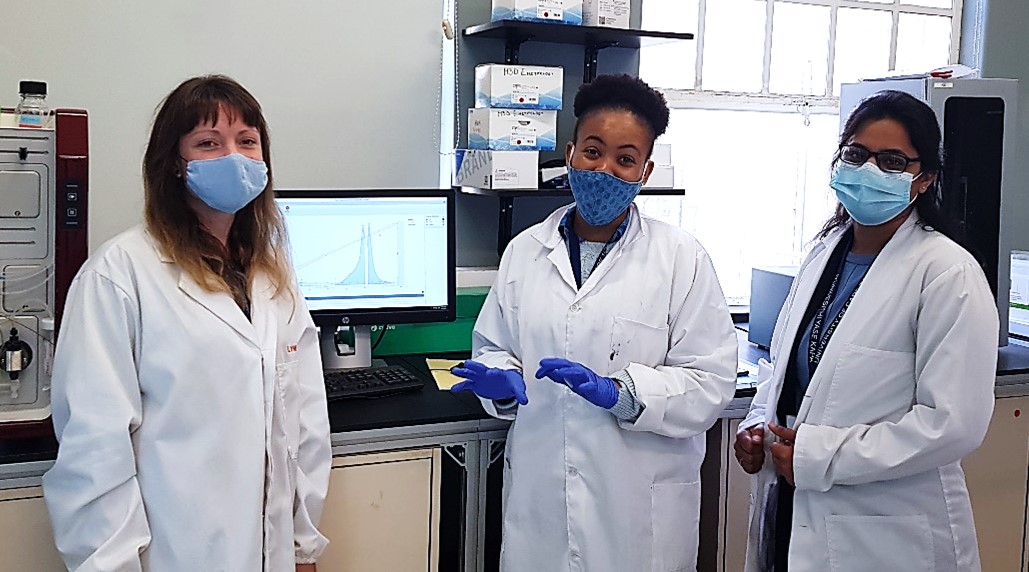Plasmodium Kinase Enzymology Platform
Plasmodium kinases have emerged as promising targets with the potential to deliver antimalarials with multistage activity1,2. Given that human kinases have been targeted extensively in oncology and other disease areas, there is a vast knowledge base to guide the design of specific inhibitors for this readily druggable family of enzymes. Plasmodium kinases, essential to both the asexual blood stages of the parasite life cycle responsible for disease symptoms and the sexual stages responsible for disease transmission, have been identified as vulnerable targets for drug discovery. Due to the highly conserved nature of the ATP binding site across this superfamily of enzymes, a key challenge for the development of Plasmodium kinase inhibitors is obtaining selectivity over the corresponding human orthologue(s) and other human kinases. Nevertheless, there is significant divergence between the Plasmodium and human kinome that can be exploited. In addition, there is an opportunity for designed polypharmacology, where several Plasmodium kinases are targeted by a single compound with the aim of improving efficacy and reducing the risk of resistance1,3. In vitro biochemical functional assays and homology modelling4/high-resolution structure determination of protein targets provide powerful information to drive target-based drug discovery programs and direct the optimisation of hit compounds for both potency against a validated target and selectivity relative to human off-targets.

Dr Lauren Arendse and her team have established a Plasmodium kinase enzymology platform to guide target-based drug discovery programs. Our laboratories situated within the Institute of Infectious Diseases and Molecular

Medicine (IDM) provide dedicated facilities and equipment for recombinant protein expression (in both bacterial and eukaryotic expression systems), protein purification and biochemical assay development. Miniaturised biochemical assays for Plasmodium phosphatidylinositol 4-kinase beta (PvPI4Kβ) and cGMP-dependent protein kinase (PfPKG) have been established to support a range of academic and H3D medicinal chemistry projects. In addition to routine compound profiling against the wild-type enzymes, these biochemical assays are coupled with site-directed mutagenesis and mechanistic studies to provide insight into mode of inhibition and key interactions driving compound potency. The enzymology team’s efforts are currently focused on expanding this platform to include the Plasmodium aurora-related kinases (PfARKs) and other Plasmodium kinases of interest.
1 Arendse, L. B., Wyllie, S., Chibale, K. & Gilbert, I. H. Plasmodium Kinases as Potential Drug Targets for Malaria: Challenges and Opportunities. ACS Infect. Dis., doi:10.1021/acsinfecdis.0c00724 (2021).
2 Gonzalez-Cabrera, D. et al. Plasmodial Kinase Inhibitors: License to Cure? J. Med. Chem. 61, 8061-8077, doi:10.1021/acs.jmedchem.8b00329 (2018).
3 Cheuka, P. M. et al. New Amidated 3,6-Diphenylated Imidazopyridazines with Potent Antiplasmodium Activity Are Dual Inhibitors of Plasmodium Phosphatidylinositol-4-kinase and cGMP-Dependent Protein Kinase. ACS Infect. Dis. 7, 34-46, doi:10.1021/acsinfecdis.0c00481 (2021).
4 Fienberg, S. et al. Structural Basis for Inhibitor Potency and Selectivity of Plasmodium falciparum Phosphatidylinositol 4-Kinase Inhibitors. ACS Infect. Dis. 6, 3048-3063, doi:10.1021/acsinfecdis.0c00566 (2020).
